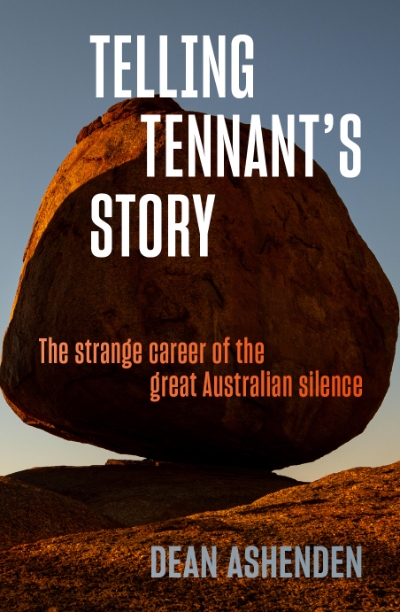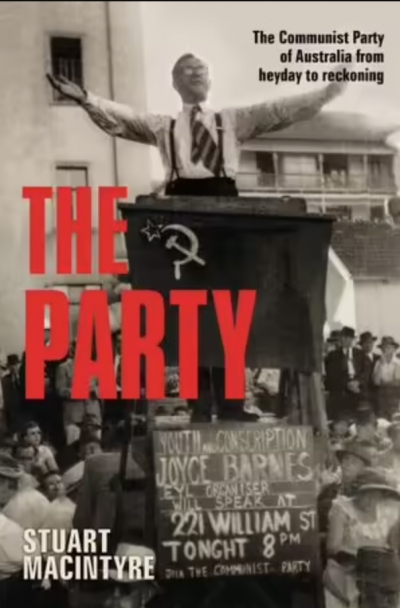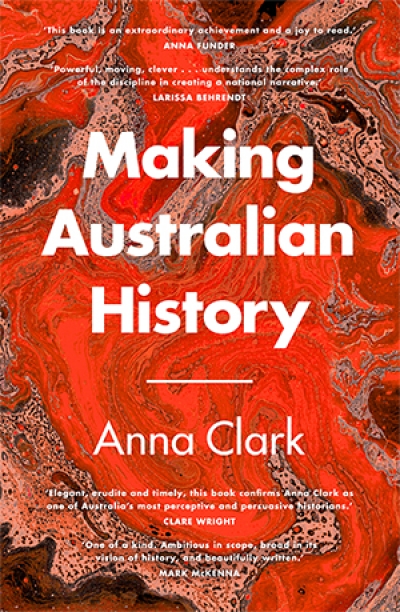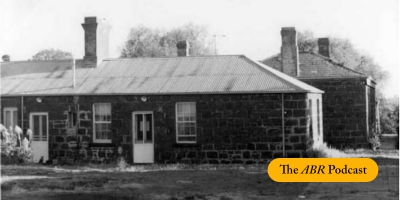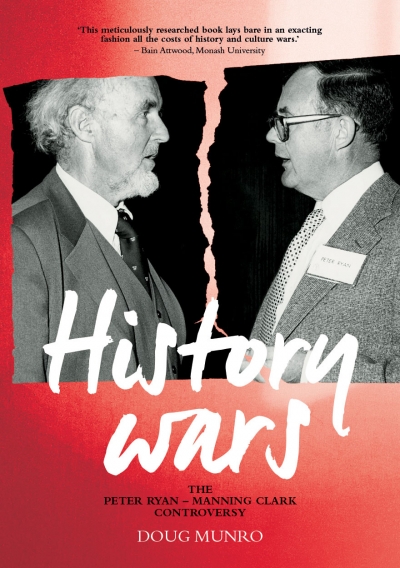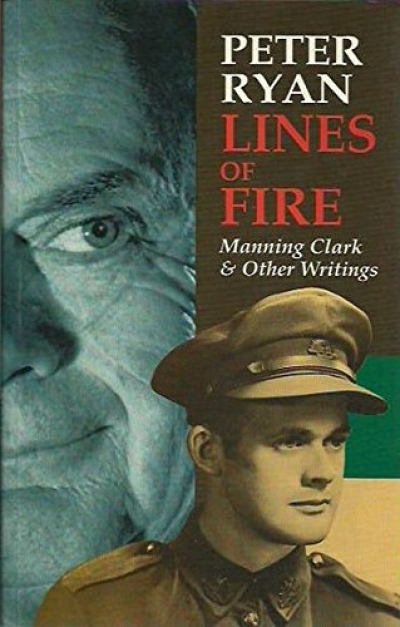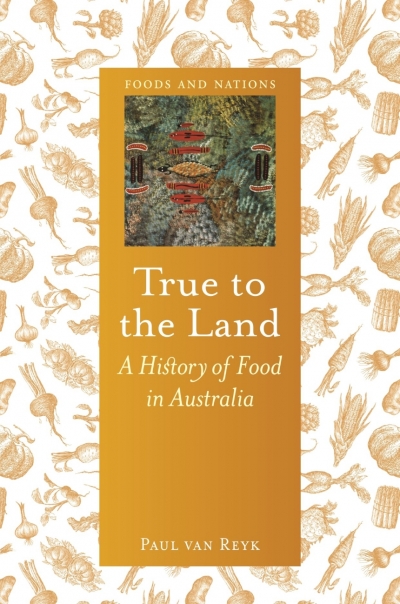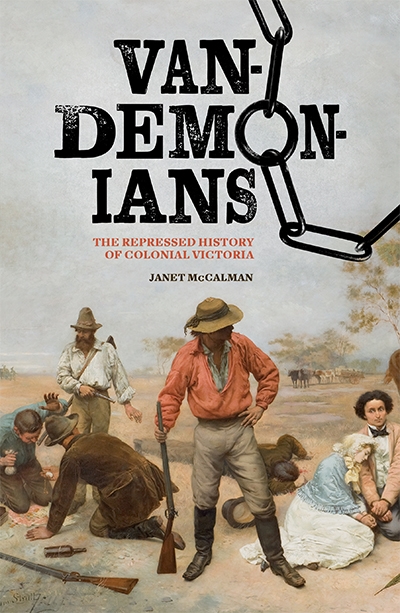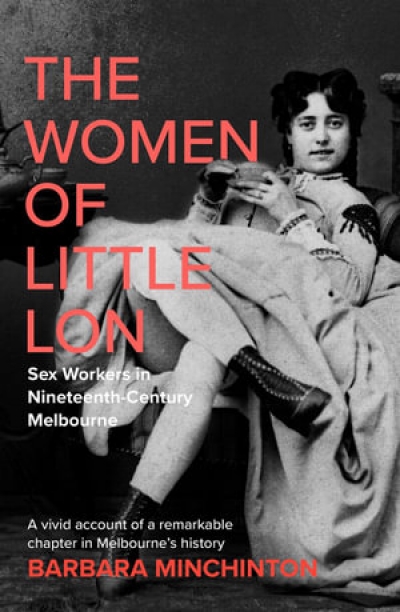Australian History
Telling Tennant’s Story: The strange career of the great Australian silence by Dean Ashenden
In Telling Tennant’s Story, Dean Ashenden gives a lucid, succinct, eminently readable account of the reasons why Australia as a nation continues to struggle with how to acknowledge and move beyond its past. Travelling north to visit Tennant Creek for the first time since leaving it as a boy in 1955, Ashenden is provoked to question the absence of shared histories on the monuments and tourist information boards along the route. Mostly, the signs record pioneer history, from which the Indigenous people are absent. When the Indigenous story is invoked, it records traditional practices and does not mention white people. ‘How did they get from then to now?’ he muses. ‘Just don’t mention the war.’
... (read more)In 1976, the Australian government signed an agreement with one of the leading universities in the world, Harvard, to fund a visiting professorial position in Australian Studies. Originally conceived by the government of Gough Whitlam, the gift of US$1 million was a token of Australian goodwill to the United States on the bicentennial celebration of the American Revolution. Its purpose was to promote increased awareness and understanding of Australia by supporting teaching, research, and publication.
... (read more)The Party: The Communist Party of Australia from heyday to reckoning by Stuart Macintyre
Stuart Macintyre was in a league of his own as a historian of communism. That’s not just a comment on his status as a historian of the Communist Party of Australia, whose first volume, The Reds (1999), took the party from its origins in 1920 to brief illegality at the beginning of World War II, and whose second, The Party, covering the period from the 1940s to the end of the 1960s, now appears posthumously. It applies equally to his stature in the international field of the history of communism. There are plenty of Cold War histories of the communist movement, written from outside in severely judgemental mode. There are also laudatory histories, written from within. But when The Reds appeared, it was, to my knowledge, the first history of a communist party anywhere that succeeded in normalising it as a historical topic, that is, writing neither in a spirit of accusation or exculpation but with critical detachment and scrupulous regard for evidence and its contradictions.
... (read more)There are many ways one might write a history of Australian history, but from any angle it’s a heroic project. In Making Australian History, Anna Clark is open about the difficulties, the possibilities, and her choices. How do you make sense of Australian history, she asks, amid a ‘swirl of changing sensibilities, methods, culture, politics and place’? How do you trace the story of a discipline across time, when each generation has defined the contours and boundaries of that discipline differently? How do you write a genuinely inclusive history of Australian History – one that gives due place to the full range of historical forms, not just those approved in academic circles?
... (read more)Melbourne’s Moreland City Council recently agreed to adopt a new name, after petitioning by Wurundjeri Woi-wurrung community leaders and prominent local non-Indigenous representatives. The petitioners argued that the name ‘Moreland’, adopted in 1839 by Scottish settler Farquhar McCrae, derived from a Jamaican slave plantation. Renaming the council was an opportunity to bring about greater awareness of both the global legacies of enslavement and the history of Indigenous dispossession. In this week’s episode, Samuel Watts reflects on the politics of memorialisation and its impact on public conceptions of history.
... (read more)History Wars: The Peter Ryan–Manning Clark controversy by Doug Munro
It was one of the most notorious episodes in the annals of Australian publishing. In September 1993, writing in Quadrant, Peter Ryan, the former director of Melbourne University Press (1962–87), publicly disowned Manning Clark’s six-volume A History of Australia. Clark had been dead for barely sixteen months. For scandalous copy and gossip-laden controversy, there was nothing to equal it, particularly when Ryan’s bombshell was dropped into a culture that was already polarised after more than a decade of the History Wars.
... (read more)Lines of Fire: Manning Clark and Other Writings by Peter Ryan
This collection of Peter Ryan’s writings, Lines of Fire, is no grab-bag of oddments. The pieces included here are given an impressive unity by the author’s imposition of his presence, by his trenchancy, elegance of expression, a desire to honour the men and women of his younger days and to excoriate a present Australia in which too many people wallow in ‘an unwholesome masochistic guilt’. The finely designed cover shows a wry, ageing, wrinkled Ryan smiling benignly over his own shoulder, or rather that of his younger self, in uniform, in late teenage, during the Second World War. What happened in between is richly revealed in the elements of Lines of Fire.
... (read more)True to the Land: A history of food in Australia by Paul van Reyk
‘The past only comes into being from the vantage point of the future,’ the novelist Michelle de Kretser told an interviewer recently. History is written in a present that is inexorably moving forward, while historians explore as far back as their interests take them. All the while they are backstitching, a step forward, a half step back. Post hoc ergo propter hoc?
... (read more)Vandemonians: The repressed history of colonial Victoria by Janet McCalman
Though a generation has grown up with online technology, we are only just starting to grasp what it means for our understanding of humanity. As a historian, I’m surprised to find that I can now trace the emotional and intellectual experience of individuals, through long periods of their lives, with a new kind of completeness. Fragments of detail from all over the place, gathered with ease, can be used to build up inter-connected portraits of real depth. A new inwardness, a richer kind of subjectivity, takes shape as a result.
... (read more)The Women of Little Lon: Sex workers in nineteenth-century Melbourne by Barbara Minchinton
We routinely think of the past as a subtext of the present, but in The Women of Little Lon Barbara Minchinton flips this around. She aims not only to ‘dismantle the myths and counter misinformation and deliberate distortions’ about sex workers in nineteenth-century Melbourne, but – in an explicitly #MeToo context – to ‘reduce the stigma attached to the work today’ while heightening our ‘understanding of and respect for the lives of all sex workers’.
... (read more)
